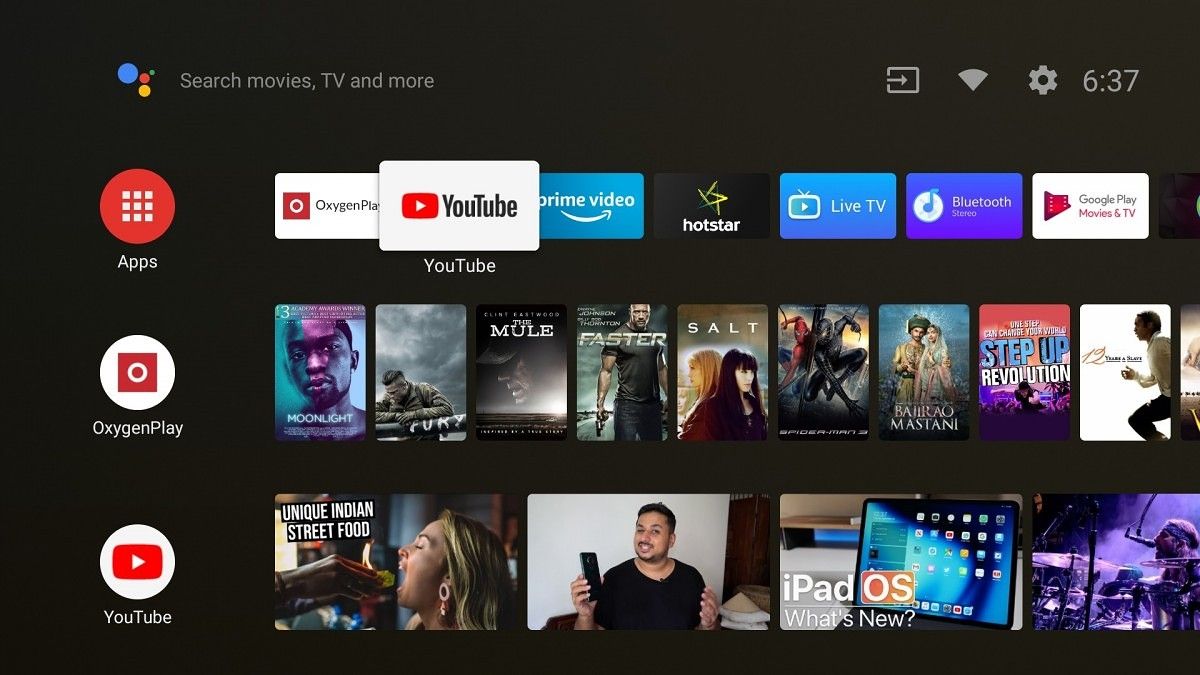Google and Amazon have long been engaged in a cold war for user share. The two internet giants cross each other’s path in several product categories – TV dongles, smart speakers and smart displays, voice assistants and a host of voice-activated products, and even app stores for Android devices. The feud took an ugly turn in 2017 when Amazon and Google started dropping support for each other’s services on their devices. It’s irrelevant who started it first but last year, things seemed to ease out a bit as YouTube returned Amazon Fire TV while the Prime Video apps gained Chromecast support. However, a recent report suggests Google may have restricted TV manufacturers from using the Fire TV operating system if they were already signed up for Android TV.
Google reportedly expects smart TV manufacturers to commit to Android TV and not experiment with other alternatives like Amazon’s Fire TV interface. Protocol reports that among the conditions that a smart TV manufacturer has to agree for an Android TV license, one condition also prevents them from engaging in the making other smart TVs that use forks of open-source Android, including Amazon Fire TV. A major TV manufacturer’s senior employee told Protocol, a company “cannot do Android TV and Fire TV simultaneously.“.
Notably, Android TV is not open-sourced and runs a customized version of the launcher and Play Store along with other Google apps that are optimized for large-screen experiences.


Homescreens of Android TV and Amazon Fire TV
In the Android Compatibility Definition Document (CDD), Google has laid out guidelines for device manufacturers to follow along with the minimum requirements they’re required to meet if they want Play Store and other Google apps to be accessible on the device. While Google allows developers and device manufacturers to customize their versions of Android by making modifications to Android’s source code, these forks must be sanctioned and verified by Google and Amazon Fire TV apparently does not make the cut for obvious reasons. The restrictions are even valid across categories and manufacturers who have agreed to the CDD for mobile devices still cannot make TVs with Fire TV interface.
Google does grant exceptions to equipment manufacturers if the devices operating on different software products are manufactured for different brands. It can also allow some leeway to those brands which sell products with variations in Android according to the region.
Google’s past troubles
Google’s CCD, formerly known as Anti-Fragmentation Agreement, has caused legal trouble for the tech giant in the past. Last year, India’s Competition Commission initiated a probe against Google on allegations that these policies prevent manufacturers from working on devices running on alternatives to Android. Similarly, the European Union had previously fined Google with €4.34 billion (approximated $4.85 billion) on the grounds that Google was “preventing manufacturers from selling smart mobile devices running on competing operating systems based on the Android open source code.”
Besides Amazon’s Fire TV, the CCD also blocks other forks of Android. Other than biggies such as Amazon, the agreement also prevents smaller manufacturers from developing their own custom versions of TV interface based on Android, if they have signed up for CCD for any other device. This ultimately prevents any significant competition from sprouting and giving absolute control over the smart TV landscape.
Whether this disclosure about Google’s binding agreement targetting and harming Amazon’s Fire TV will gain the same impetus as similar cases did in the case of Google’s monopoly in smartphone operating systems and search engines is something we’ll learn over time. For now, Google can be seen benefiting from this as it announced signing deals with six out of the top 10 smart TV manufacturers and 140 cable TV operators around the globe.
The post Google reportedly blocks Android TV makers from also using Amazon Fire TV appeared first on xda-developers.
from xda-developers https://ift.tt/2TYpqAe
via IFTTT

Aucun commentaire:
Enregistrer un commentaire